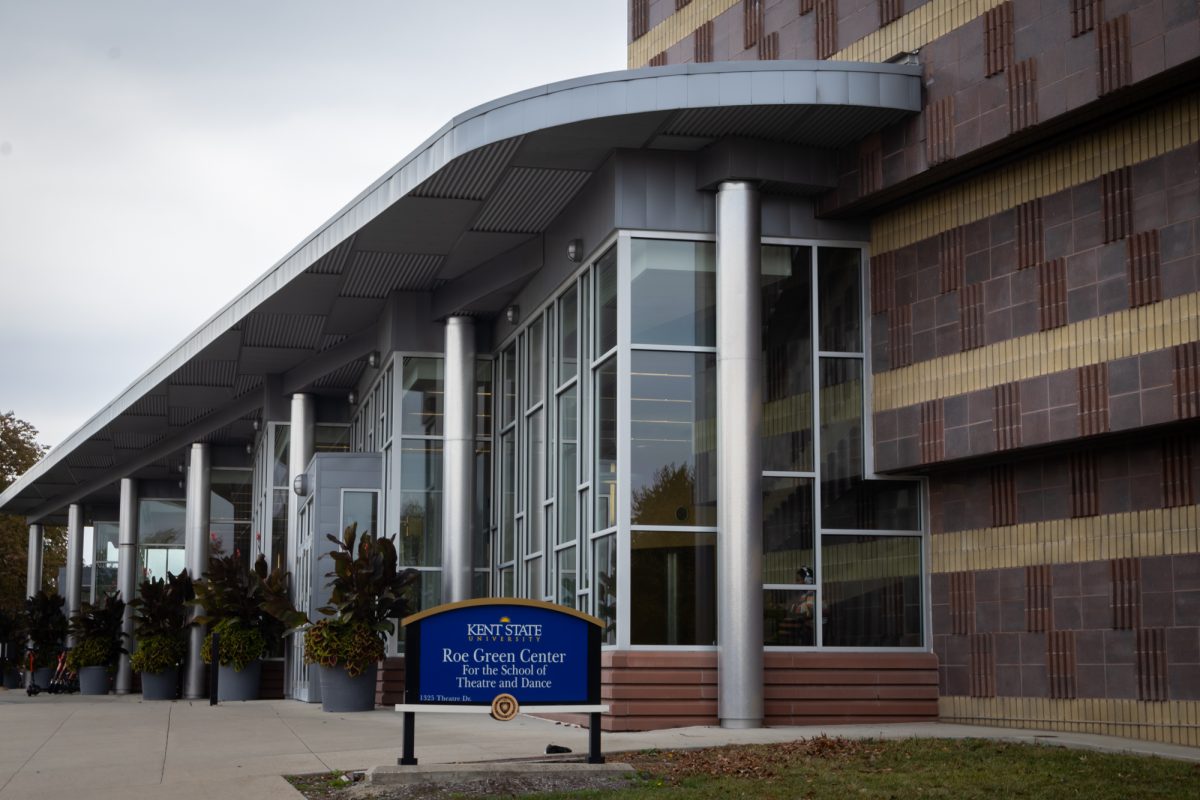The university’s choirs and orchestra will look to prompt questions about American identity and what that means to a person in their “What is America” performance Sunday in Cartwright Hall.
The program will feature American composers who are exploring the American identity in their own way, said Jacob Schnitzer, the interim director of orchestras.
“There are so many masterworks from the United States by composers from varying backgrounds and demographics and different walks of life,” he said. “We wanted to showcase music that was representative of who we were as a student body, as a community and as Kent State.”
The orchestra and choirs will bring their music to the University Auditorium in Cartwright Hall from 3 – 5 p.m. Sunday. Kent Chorale, Kent Chorus, Cantique, Coro Cantare and the KSU Chorus at Salem will perform along with the orchestra.
The afternoon’s five-song program will open with the orchestra’s performance of “An Outdoor Overture” by Aaron Copland. Schnitzer said Copland is “a great inevitable master” who struggled with his sense of identity as a gay Jewish man brought up by immigrant parents in the early 1900s.
The choruses and orchestra will then play “I will lift up mine eyes” by Adolphus Hailstork, a living African American composer who incorporated spiritual-type melodies in his writing, according to Interim Director of Choral Activities Bret Peppo.
Chorus-only music includes two traditional Lakota Native American songs arranged by Native American William Linthicum-Blackhorse. Their work often uses snippets of traditional folk songs from Native American culture with a mission of passing on that legacy, Peppo said.
“We’re singing a piece about, ‘We will stand together, and we will fight for what’s right – we will be like thunder,’” Peppo said. “There’s another piece that’s based on a Lakota melody that a mother might sing to her child who is trying to go to sleep. This is a melody that might have been sung for hundreds of years and never written down.”
The performance will conclude with the orchestra’s performance of Symphony No. 4 “Autochthonous” by William Grant Still, which Schnitzer said inspired the title of the performance.
“‘Autochthonous’ is a word that refers to the indigenous quality of the land,” Schnitzer said. “He’s not referring to particularly indigenous people. He‘s asking, ‘What’s the soil? When people lived here from all different backgrounds and all different walks of life, what was something that united them from the ground at their feet.’”
According to the program, the first movement of Symphony No. 4 is centered around optimism, energy and “the American ability to get things done.” The second movement is slower and folky. The third movement is “humorous and unmistakably typical of our country,” and the fourth has a more spiritual aspect.
Schnitzer said the inspiration for the program started with he and Peppo trying to find a way to build collaboration between their departments.
“[We’re] channeling the powers of instrumental music with vocal music together, where you have the whole scale and grandiosity of the orchestra and the words and personal contributions of the singers,” Schnitzer said.
Peppo and Schnitzer said the choirs and orchestra filled about half the auditorium at their last respective concerts, so Schnitzer anticipates a large turnout for the combined performance.
“Bringing those two audiences together – this could be a hot ticket in town,” he said. “I wouldn’t want anyone who wants to see the show to miss it.”
Tickets are available online or at the box office in the Center for Performing Arts on campus. Students can use their Arts Pass for a free ticket to the performance, and general admission costs $12.
“This concert is about us all coming together and being a community,” Schnitzer said. “The ethos of it is, ‘Look how beautiful of a world we can make when we’re all together.’”
Isabella Schreck is editor-in-chief. Contact her at [email protected].


